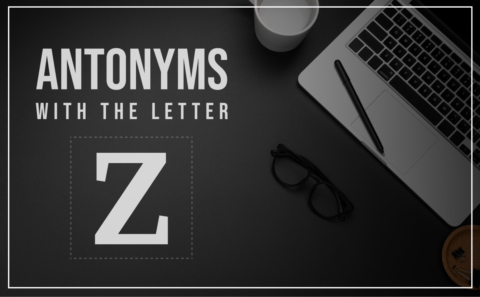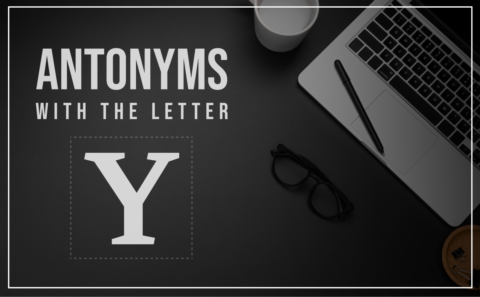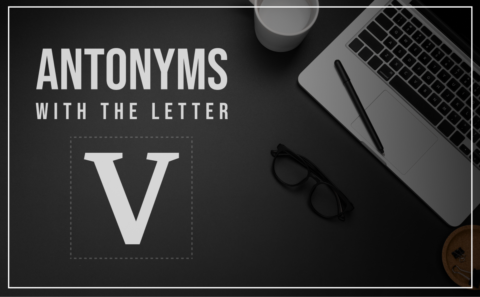Welcome to our comprehensive guide on Future Tense. In English grammar, understanding the Future Tense is crucial for effective communication. This guide will provide you with clear examples and explain how to use Future Tense to express future actions effectively. Let’s dive into the fascinating world of Future Tense!
Simple Future Tense
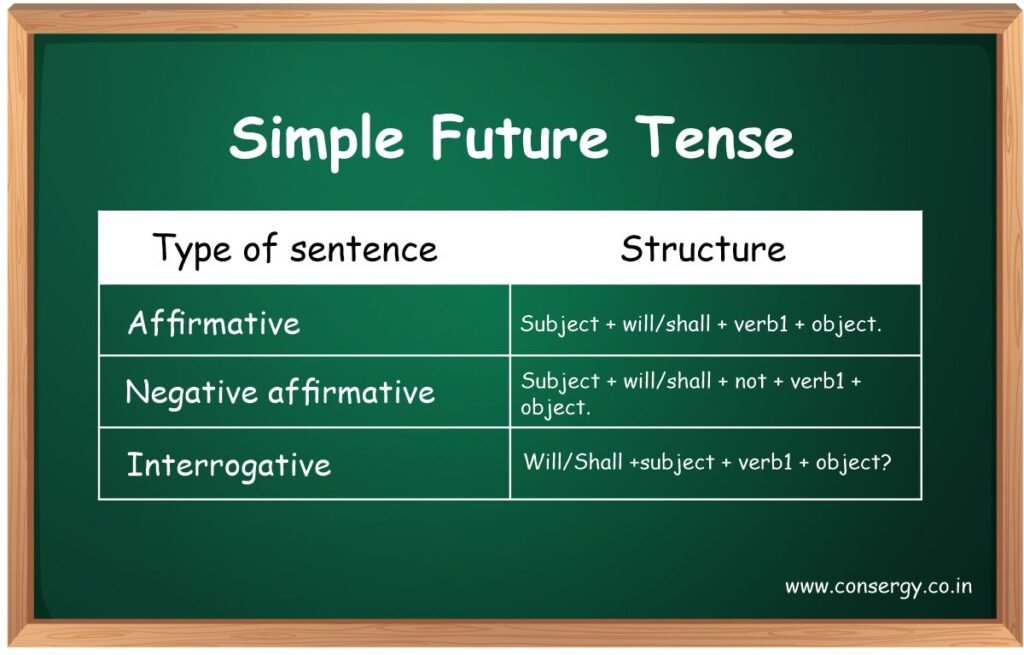
- To express the future.
For example:
Tomorrow is Friday.
I shall be forty next month.
- To show habitual actions that probably will happen in the future.
For example:
Monkeys will not build nests.
We will take the exams.
- To express the speaker’s advice, suggestions, opinion, etc. about someone’s future.
For example:
She will get the first position in the class.
My sister will sell her house.
- We can use this tense when we decide to do something at the time of speaking.
For example:
It is raining. I shall take an umbrella.
- To express the future with a time clause.
For example:
We shall go home when he comes.
You shall complete your work before the teacher comes.
- With conditional sentences.
For example:
If you come home, I will teach you that topic.
If you come to me, I will help you.
Future Continuous Tense
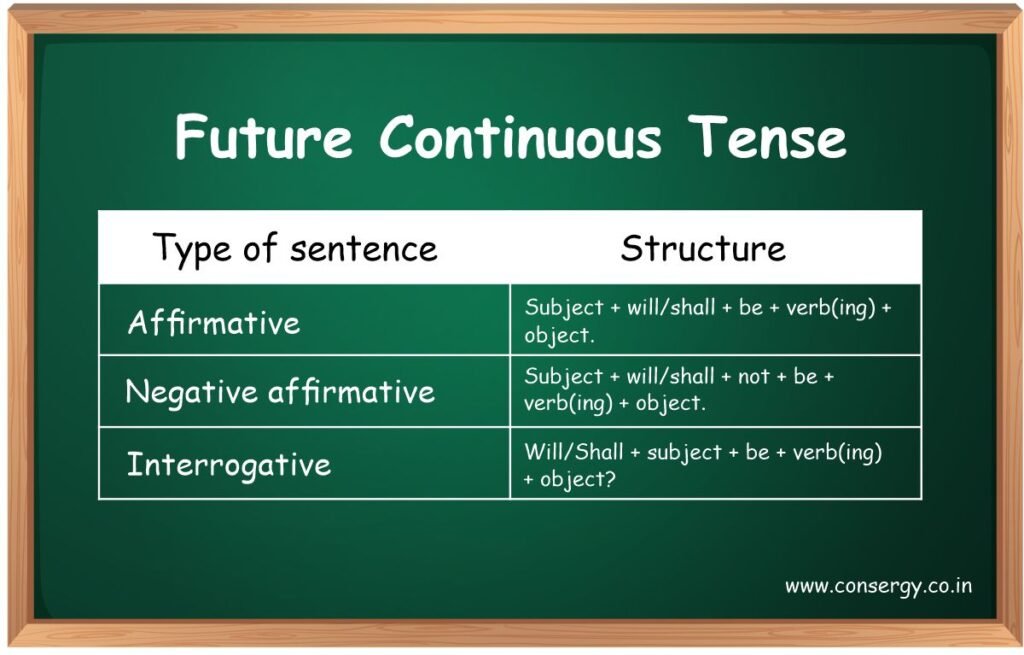
- To express an action that can be continuous at a particular point of time in the future. The action began earlier than the time of speaking and it is expected to continue for some time in the future.
For example:
When he arrives today I will be making dinner.
Tomorrow the teacher will be teaching the students.
- To express the future without intention. They do not have the performer’s involvement. Such actions go on automatically.
For example:
I will be seeing Mr. Sharma tomorrow. We work in the same office.
We will be having a party next Sunday at this time.
Note: We also use ‘be to + verb1’ to represent official plans and arrangements. Often used in news reports and headlines.
For example:
The Prime Minister is to visit New Zealand next week.
The meeting is to discuss the “Sales Plan”.
In headlines, ‘be’ is generally removed.
For example, The Prime Minister to visit New Zealand.
Future Perfect Tense
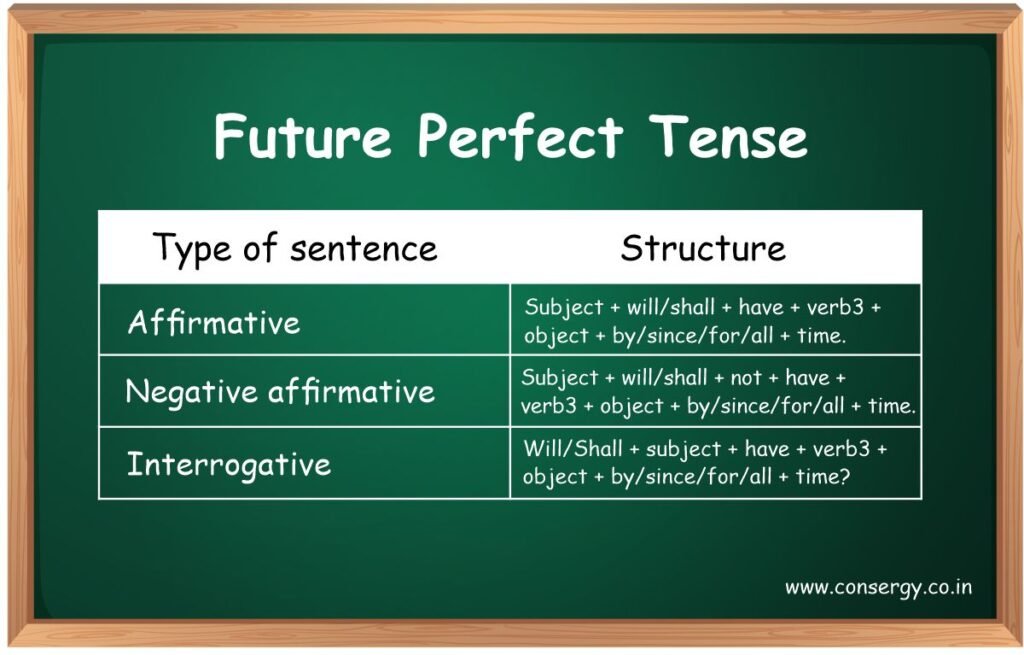
- To describe an activity that will have been completed by a certain point of time in the future.
For example:
He will have returned home by next month.
By the end of August, I will have worked here for twenty years.
Future Perfect Continuous Tense
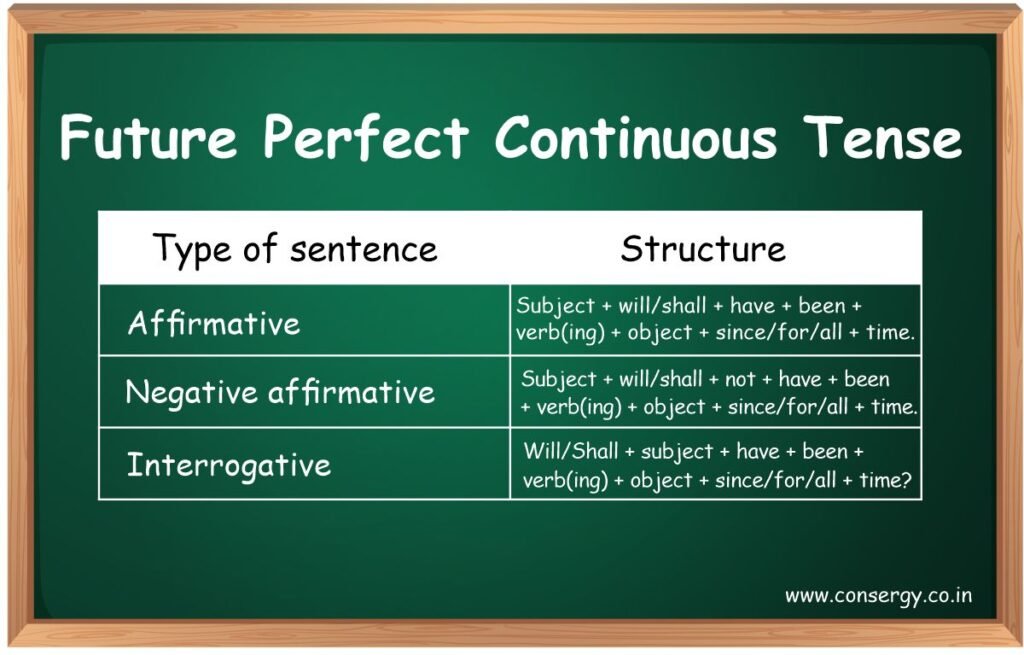
- To express an action that shows continuation for a period of time in the future.
‘Since/for/all + time’ is used.
For example:
When he arrives here they will have been playing for 3 hours.
Note: This tense is rarely used.




